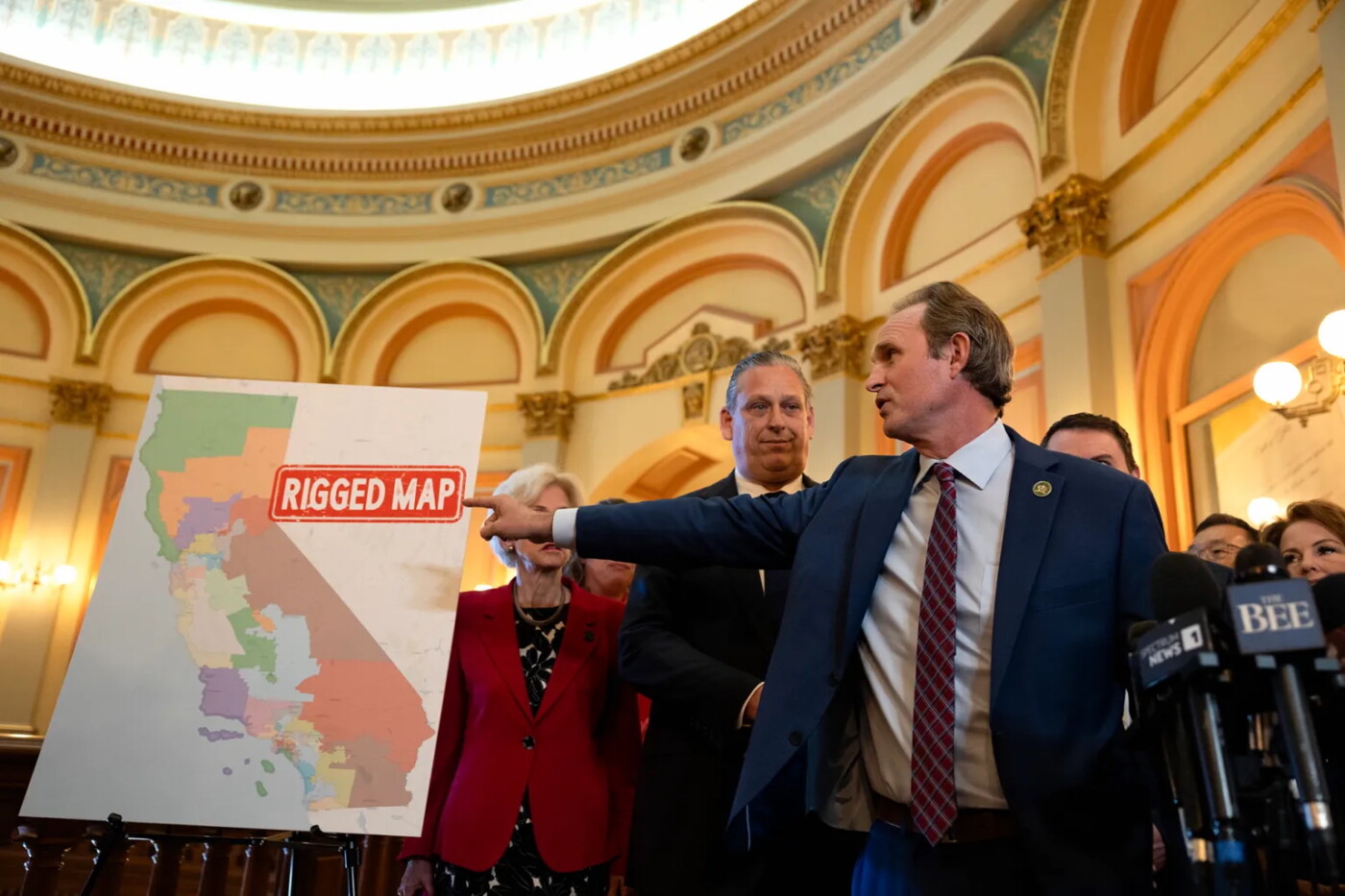In summary
California Democrats used a common legislative tactic called “gut and amend” to rush legislation for a special election on new election maps. Republicans say that violates the state constitution.
A group of California Republicans is suing the state to block the Democratic-controlled Legislature from considering the bills that would allow Gov. Gavin Newsom to facilitate a special election on gerrymandered congressional maps.
The legal action could slow down the process by which elections officials, already tight on time, get the maps onto Californians’ ballots for the Nov. 4 special election Newsom wants. But that depends on how quickly the California Supreme Court moves, and whether it suspends the process while considering the lawsuit.
Newsom needs voter approval for the maps because California has an independent redistricting commission that draws election maps after every census. He’s in a hurry to get the measure on the ballot as a response to Republican gerrymandering efforts in Texas that are intended to sway the 2026 congressional elections in the GOP’s — and President Donald Trump’s — favor.
The Republicans argue that Democratic leaders violated the state constitution by bypassing a rule that says with few exceptions legislation must be publicly available for 30 days before lawmakers vote on it.
To get the maps on the ballot, Democrats repurposed two existing bills rather than introduce new legislation that would trigger the 30-day window.
Sen. Tony Strickland, Republican of Huntington Beach and the lead lawmaker on the lawsuit, slammed Newsom and Democrats for drawing up a “backroom deal” with “ “no public input, no transparency, no light of day”
“If they did it right, they would have public hearings, public notice, they would get the authority from the people of California, and then they would draw the maps,” Strickland said.
The bills in question, Assembly Bill 604 and Senate Bill 280, were first introduced and given bill numbers in early February. The new language on the redistricting effort was posted early Monday morning.
Chris Micheli, a longtime lobbyist, said lawmakers “for decades” have viewed a bill’s initial introduction date – often in early January near the start of session – as the date that starts the 30-day clock. For gut-and-amends, the Legislature abides by a different rule added to the state constitution by voters in 2016: the language needs to be published for 72 hours before lawmakers can vote.
“To be fair, it is untested and there’s no court decision on this,” Micheli said of Republicans’ lawsuit. But, “I don’t think it will succeed.”
Lawmakers frequently use the gut-and-amend tactic to skirt deadlines and introduce new legislation late in the season. Rarely, if ever, does the opposition party call on the California State Supreme Court to mediate what is otherwise a wonky game of insider legislative baseball.
But with the redistricting push, Republican lawmakers have doubled down on their defense of the state’s citizen redistricting commission, established in 2010 on a bipartisan basis to prevent politicians from drawing maps that are self-serving.
“The public cannot have a voice if they do not know what’s going on,” said Assemblyman Carl DeMaio of San Diego, who is not party to the lawsuit. “What Governor Newsom and the legislators are trying to do is prevent the public from knowing what’s going on before it’s too late.”
CalMatters’ Jeanne Kuang contributed reporting to this story.
